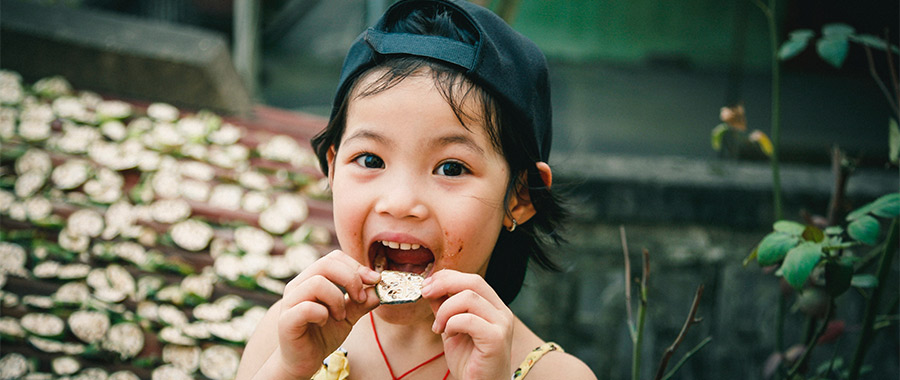Raising children is a profound responsibility, one imbued with a unique spiritual dimension in the Baha’i Faith. The teachings of Baha’u’llah, the founder of this religion, provide a rich tapestry of guidance for nurturing the spiritual development of young minds. This comprehensive guide delves into various aspects of raising children spiritually within a Baha’i context, offering insights that can be instrumental for parents and educators alike.
The first fundamental concept in fostering spiritual growth in children is the importance of love and affection. Baha’i teachings emphasize that love is the essential element for the formation of a strong character. It is imperative to create a nurturing environment where children feel valued and cherished. This affection lays the foundation for a profound understanding of divine love, which cultivates a sense of security and belonging. By modeling love in familial interactions, parents instill in their children the capacity to express and receive love throughout their lives.
Another pivotal facet of spiritual education is the instillation of moral virtues. Baha’i writings elucidate the importance of virtues such as honesty, kindness, compassion, and perseverance. Parents can weave discussions about these qualities into everyday life, encouraging children to reflect upon their significance. Storytelling serves as a powerful pedagogical tool in this regard; parables and historical anecdotes from Baha’i and other spiritual traditions can illustrate moral lessons in an engaging manner. The emphasis should not solely be on rote learning, but rather on ensuring that virtue becomes a lived experience for the child.
The practice of prayer and meditation is vital in the Baha’i tradition and should be encouraged among children from an early age. Teaching children to pray cultivates their connection to the Divine and fosters spiritual awareness. A daily routine that incorporates time for prayer helps children develop the habit of seeking guidance from God in every aspect of their lives. Furthermore, meditation can serve as a method for contemplation and introspection, allowing children to understand their thoughts and emotions more deeply. Parents are encouraged to join children in these practices, as shared spiritual experiences can enhance familial bonds.
Education, both secular and spiritual, is fundamentally intertwined in the Baha’i Faith. The principle of the oneness of education posits that all learning should contribute to the development of an individual’s character. Parents are encouraged to seek educational environments that not only prioritize academic excellence but also promote ethical and spiritual values. Engaging in discussions about academic subjects through the lens of spiritual principles can stimulate children’s curiosity and foster a holistic worldview. When education is rooted in both moral integrity and intellectual pursuit, children develop into well-rounded, thoughtful adults.
Community involvement is another cornerstone of the Baha’i teachings regarding child-rearing. Children thrive when they are part of a supportive community that reflects Baha’i values. Encouraging participation in community service projects, gatherings, and celebrations can provide children with a sense of belonging and purpose. Such involvement also cultivates an understanding of the importance of service to others, echoing a vital tenet of the Baha’i Faith – that true happiness is found in sacrificing for the well-being of humanity.
As children grow, the concept of independence becomes increasingly important. Baha’i teachings advocate for the development of autonomy, allowing children to make decisions and learn from mistakes. Parents should strike a delicate balance between guidance and independence, ensuring that children feel empowered while still having a reliable support system. This autonomy fosters confidence and self-reliance, essential traits for navigating life’s complexities. It is also essential for children to learn accountability, understanding that their choices and actions have consequences.
The role of family rituals and traditions cannot be understated in the context of spiritual upbringing. These practices create a shared sense of identity and belonging. Rituals such as the celebration of Baha’i Holy Days, family gatherings, and periods of reflection foster a sense of continuity and connection with the Faith. Participation in these traditions helps children appreciate the significance of their spiritual heritage and encourages them to develop a personal relationship with their beliefs.
As children transition into adolescence, it is crucial for parents to engage in open dialogues about spiritual topics and contemporary challenges. Adolescence can be a tumultuous period, marked by questions about identity, purpose, and belief. Baha’i teachings encourage parents to provide a safe space where youth can express their doubts and aspirations. By maintaining open channels of communication, parents can guide adolescents in exploring their spirituality, reinforcing the idea that faith is an evolving journey rather than a fixed endpoint.
Moreover, parents should be cognizant of the examples they set through their actions. Children are keen observers, often emulating the behavior of adults. The embodiment of Baha’i principles in daily life is an invaluable teaching tool. Demonstrating integrity, humility, and perseverance strengthens the lessons taught and resonates more profoundly than mere verbal instruction. When children witness these qualities in their parents, they are inclined to internalize them.
In conclusion, raising children spiritually within the Baha’i framework is an engaging and multifaceted endeavor. By fostering love and moral virtues, encouraging prayer and meditation, integrating education and community participation, and maintaining open communication, parents can cultivate a rich spiritual tapestry. The Baha’i teachings offer an invaluable guide, ensuring that children not only embrace their faith but also carry its principles into a world that greatly needs their light and compassion. With careful nurturing, the next generation can thrive and contribute positively to society, embodying the values of the Baha’i Faith and spreading its message of unity and love.
